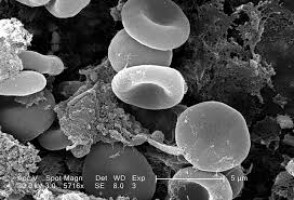
A study led by researchers at Sylvester Comprehensive Cancer Center at the University of Miami Miller School of Medicine suggests that CAR-T immunotherapy remains a viable option for patients who have lymphoma that goes into remission before the cell therapy begins.
While the study doesn’t answer the question of whether cell therapy in remission is the right choice, it does say that it’s not the wrong choice.
“I don’t think it answers the question of: Should we give these patients cell therapy? But I think it answers the question that we can – that it’s safe and that it’s a reasonable strategy when you’re in that spot,” said Trent Wang, D.O., a Sylvester haematologist and cellular therapy specialist who will present study findings in an oral presentation at the 65th ASH Annual Meeting and Exposition, the American Society of Hematology’s conference taking place in San Diego, California, Dec. 9-12.
Most patients receiving cell therapy, a form of immunotherapy that uses immune cells engineered to recognise and attack the patient’s cancer, desperately need it. For some, it comes after many other treatments have failed. But Wang noticed an odd phenomenon in the past few years when treating lymphoma patients with this form of therapy: Some of his patients went into complete remission before the cells ever touched their bodies.
This uncommon scenario occurs during the process of getting to cell therapy, which in the case of Wang’s study uses a kind of engineered immune cell known as CAR-T cells. When a patient starts the process, there’s a waiting period of three to five weeks before they get the treatment. Insurance approval is needed, and the cells themselves need to be manufactured from the patient’s own cells. But many of these patients are very sick with their cancer, so physicians will often treat them with a short course of chemotherapy or other drugs to tamp down the symptoms.
A small handful of these patients end up in remission during this waiting period treatment, the clinicians have found.
“That prompted this dilemma: Now what are we supposed to do?” Wang said. “Should we change the plan or give the therapy anyway? We just didn’t have a lot of information on this scenario.”
Wang said more often than not his team would proceed with the cell therapy in these cases, mainly to prevent yet another stretch of time where the patients’ cancer might come back again. But it didn’t feel like a very informed decision.
Wang and his colleagues noticed that their patients who received the cells while in remission tended to fare well after their infusion. But they didn’t know if those results would hold up in an analysis of a larger group. They proposed a research study to the Center for International Blood & Marrow Transplant Research, a nationwide registry that tracks patients who have received transplants and/or cell therapies.
The study included data from 134 patients in the registry who had gone into complete remission in the waiting period before receiving their cell therapy. To find that group, the scientists screened the records for more than 5,000 cell therapy patients.
They found that this group of patients had a 43% probability of progression-free survival over the two years following their treatment, about the same percentage as patients in the registry who were not in remission when they received CAR-T. However, the patients in remission had very low levels of toxicities related to their cell therapies, namely an immune overreaction known as cytokine release syndrome and neurotoxicity, two side effects that can sometimes accompany CAR-T cell therapy.
The study used data from patients treated with CAR-T cell therapy between 2015 to 2021, and current frequencies of specific cell therapy use are slightly different from those that were used in practice just a few years ago, Wang said. Next, the researchers want to explore the data paralleling more recent treatment trends.
Authors: Wang, first author, and Antonio M. Jimenez Jimenez, M.D., last author, are Sylvester researchers. Co-authors include Kwang Wooahn, Ph.D., Manmeet Kaur, and Mehdi Hamadani, M.D., Medical College of Wisconsin; Mazyar Shadman, M.D., Fred Hutchinson Cancer Center, Seattle; Alex F. Herrera, M.D., City of Hope, Duarte, California; and Craig S. Sauter, M.D., Taussig Cancer Institute, Cleveland.